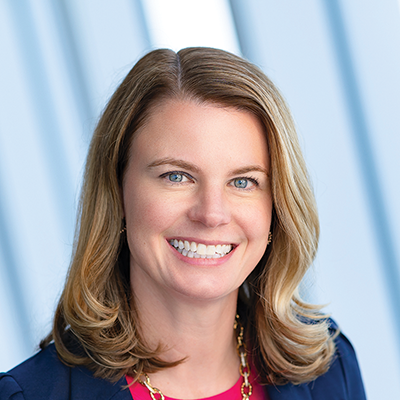High Yield: Near-Term Risks & Opportunities
While Covid-19 had a swift and sharply negative impact on markets in March, we have since witnessed an impressive and broad-based rebound, due largely to the fiscal and monetary stimulus provided by central banks globally. In the U.S. for instance, the Federal Reserve announced its intention to buy so-called fallen angel credits as well as shares in high yield ETFs—which provided significant support to investment grade credits as well as higher-quality high yield names. In addition to this technical support, which we believe will continue to be supportive of risk assets in the near term, second quarter earnings exceeded low market expectations.
Looking ahead to the remainder of the year, there are still many unknowns when it comes to the virus—from a potential second wave and the resulting impact on the economy, to the introduction and acceptance of a vaccine. There are also a number of macro factors that could impact the markets, including trade tensions between the U.S. and China as well as the upcoming (and divisive) U.S. presidential election. That is to say, while opportunities continue to emerge, volatility is almost given going forward.
Despite challenges...
Given the stressed economic conditions since March, high yield default risk has come under scrutiny. Although defaults have risen year-over-year, they remain well below what some sell-side forecasts were calling for at the height of the crisis and have been concentrated primarily in the energy sector. Generally speaking, given the liquidity that has been injected into the capital markets, we think most companies should be equipped to withstand the near-term shock from the pandemic.
That said, not all businesses and sectors have been impacted to the same degree. Companies in the travel and leisure sectors, for instance, have been particularly hard hit, with many still operating at a fraction of their typical capacity levels. In the absence of a vaccine or effective therapeutics in the coming months, these companies will continue to face significant challenges. However, given the progress being made on that front, we believe there is reason to remain optimistic. In addition, many of these companies have successfully tapped the high yield market for liquidity-bolstering deals that should enable them to cover cash needs for a number of months.
...Opportunities Exist
While volatility is likely to persist, we believe high yield as a whole continues to look attractive. Of note, the credit quality of the market has increased notably since the financial crisis—with 56% of the market rated BB, versus only 38% in 2007, and less than 12% of the market rated CCC.
Based on the amount of BBB-rated debt with a negative outlook or on negative watch by ratings agencies, we think fallen angel credits—or those recently downgraded from the lowest investment grade status to high yield—present an interesting opportunity. Year-to-date, roughly $180 billion of investment grade credits have been downgraded into high yield, which was well absorbed by the market despite the heavy volume. Going forward, our internal analysis suggests we could see as much as $150 billion of investment grade debt at risk of downgrade into high yield over the next 12-18 months.1 As fallen angels transition into the high yield market, they often trade at spreads wider than those of their BB-rated peers—despite the fact that these credits are often issued by large, well-diversified companies with numerous levers at their disposal to maintain liquidity and service their debt.
Senior secured bonds also present a compelling opportunity, in our view. Senior secured bonds were the first high yield deals to price coming out of the selloff, and there has been a healthy level of secured supply in the months since. While offering similar yields and spreads to the broader high yield market, senior secured bonds have historically offered higher recovery rates than unsecured bonds as a result of being senior in the capital structure and secured by some or all of a borrower’s assets.
We also look at small cap high yield deals—these so-called orphaned credits are typically not covered by the sell side market or by passive strategies. In our view, this provides a chance for active managers with deep teams of analysts to uncover attractive and, at times, overlooked opportunities.
Active Management is Key
The high yield market has a tendency to exhibit short-term pricing inefficiencies, particularly during bouts of volatility. In our experience, these periods can prove to be a significant opportunity for value creation—particularly for active managers with the ability to exploit pricing gaps quickly and efficiently. We saw this most recently in March, when spreads widened significantly—in some cases well beyond what fundamentals would suggest. As ETFs were forced to sell assets to meet redemptions, there were opportunities for active managers to buy those bonds at discounted prices.
In the months ahead, investors will be focused on the U.S. presidential election, and also how quickly the economy can reopen amid the ongoing pandemic. While both candidates seem keen to continue supporting the economy through the pandemic, uncertainty remains in the interim as to when Congress may pass the next phase of stimulus, which could create near-term volatility. Longer-term, a change in administration could result in new tax or regulatory policies that could have more sizable impacts on certain industries over others. But it’s important to remember that meaningful legislative or regulatory changes often take years to implement. In the meantime, it is important to carefully monitor the data that drives near term-fundamental credit performance, such as PMI data, housing market stats, car sales and mobility trends.
Ultimately, we cannot predict election outcomes or the timing of a vaccine that could help propel further economic reopenings. But eventually, the economy and markets will recover—albeit at varying paces—and active management, combined with a steadfast focus on corporate fundamentals, will be key to capitalizing on the resulting upside.
1. Based on Barings’ market observations. As of September 18, 2020.





